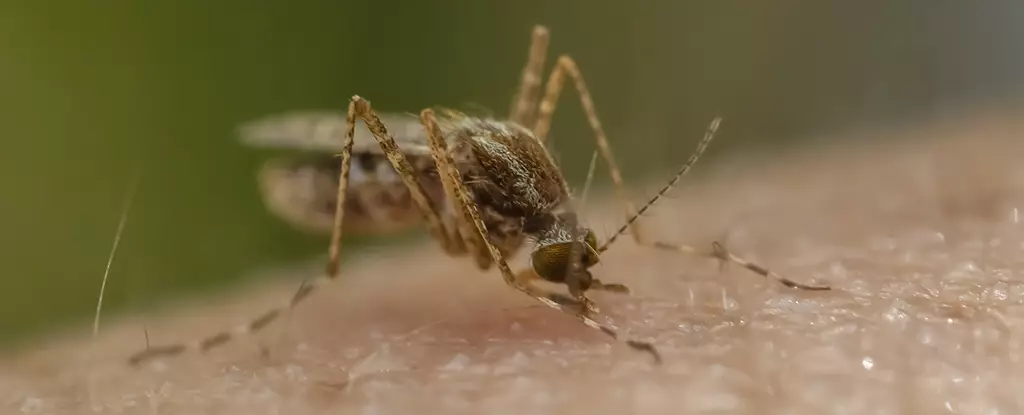For decades, mosquitoes have been vilified as the prime vectors of dangerous diseases, most notably malaria, which claims hundreds of thousands of lives annually. However, a groundbreaking study has flipped this narrative on its head by harnessing the very insects that spread disease as a vehicle for a promising new malaria vaccine. This innovative approach has piqued the interest of scientists and public health officials alike, offering a new ray of hope in the fight against a disease that still afflicts nearly 250 million people worldwide every year.
Researchers from Leiden University and Radboud University in the Netherlands have developed a second-generation malaria vaccine that has shown remarkable efficacy in preliminary trials. The vaccine employs a genetically modified version of the Plasmodium falciparum parasite—the microorganism responsible for malaria. Dubbed GA2, this altered version is engineered to be incapable of causing malaria while still effectively preparing the human immune system to fend off future infections. The stark results from the study are notable: eight out of nine participants who received the GA2 vaccine developed robust immunity, a stark contrast to just one out of eight who were given the existing vaccine.
This development marks a significant leap in the scientific understanding of vaccine mechanisms. Researchers have long struggled to develop vaccines that offer substantial and lasting protection against malaria, an illness that continues to evolve in its ability to evade immune responses.
The methodology behind the GA2 vaccine involves exposing the body to a “crippled” version of the malaria-causing parasite through a mosquito bite. This approach mirrors the natural transmission process of malaria, allowing the modified parasite to reach the liver, where it prompts an immune response. However, because the GA2 variant lacks critical genes necessary for its lifecycle, the parasite fails to mature, preventing any disease manifestation. Meta Roestenberg, a leading vaccinologist from Leiden University, notes that the lengthened development time of the GA2 strain, which takes about a week to develop in the liver compared to the 24 hours required for its predecessor GA1, permits a more robust immune response to occur.
This delayed development not only enhances immune activation but also catalyzes a diverse array of immune cells, which are pivotal for recognizing and targeting actual malaria infections should they occur in the future. Understanding the reasons behind this enhanced immune response could pave the way for even further refinements of the vaccine.
The side effects reported in the initial study were predominantly mild, with participants describing minor redness and itching at the site of the mosquito bite. Critically, this presents a favorable safety profile for a vaccine that targets a disease as insidious as malaria. Additionally, all study participants received prophylactic anti-malaria medications after the trial concluded, which reflects a commitment to maintaining health standards and mitigating risks.
Despite these promising results, the current statistics on malaria remain alarming: an estimated 250 million cases per year and hundreds of thousands of fatalities. Existing vaccines have shown effectiveness rates ranging from 50-77%, with protection often diminishing after the first year. The need for effective long-term solutions is urgent, and the GA2 vaccine arrives as a significant step towards fulfilling that need.
While the transference of this research from laboratory trial to widespread public usage remains a challenge, the potential of the GA2 vaccine exemplifies a fresh perspective in global health initiatives. Utilizing mosquitoes as a delivery system makes this approach unique and potentially practical in remote regions where traditional vaccination strategies may falter. However, as noted by clinical microbiologist Matthew McCall, turning this promising research into a functioning vaccine rollout requires overcoming numerous logistical hurdles.
As science moves forward, the prospect of using genetically modified organisms to tackle pressing health issues offers the possibility of innovative solutions that reframe our understanding of disease prevention. The study of the GA2 malaria vaccine illustrates that, with creativity and scientific resolve, even the most feared vectors of disease can be transformed into vital allies in the quest for better health.


Leave a Reply